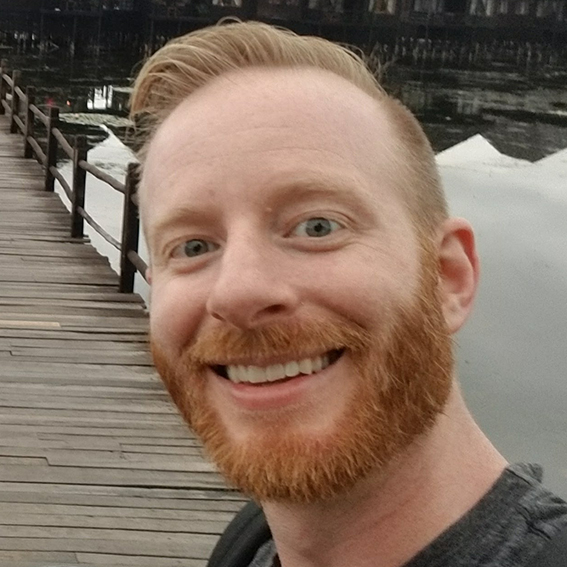James Getomer, Design Graduate Student, Will Represent SFSU At The CSU Student Research Competition

James Getomer (MA in Design, 2019) has been chosen to represent San Francisco State University at the CSU Student Research Competition in the area of Creative Arts and Design. Join us in congratulating James on this amazing accomplishment. He will present his research at the state-wide competition at California State University, Fullerton on April 26 and 27.
We will get the chance to hear his presentation, "Project Daybreak: Increasing Student Access to Mental Health Support" when he presents at the Graduate Research and Creative Works Showcase on Tuesday, April 23.
Project Daybreak: Increasing student access to mental health support through UX research and service design.
ANXIETY AND DEPRESSION are at an all-time high on college campuses, leaving most university counseling centers over-scheduled and under-resourced. Students frequently experience wait times of several weeks between signing up for a counseling appointment, and accessing the help they need. Project Daybreak aims to expand student access to support, and ease the burden on campus counseling centers, by recommending ancillary support services that can be implemented at large public universities (such as SFSU). These recommendations are grounded in both quantitative and qualitative research. In order to characterize the particular mental health situation at SF State, I used multiple methods and interviewed a variety of stakeholders, including mental health administrators, faculty members, and the students themselves. This research is unique in that it goes beyond the existing general statistics about student mental health, and more accurately captures the particular situation at large public commuter universities like SFSU.
Ultimately, Project Daybreak proposes a multi-tiered system of support that takes into account the unique challenges faced by such universities. While it is critical to maintain existing formal counseling services, my research suggests that they can be augmented with a variety of low cost, informal support options. By offering overlapping formal and informal services, we can provide students with easier access to a robust network that will benefit them throughout their college careers.